- Home
- About ANT
-
Products
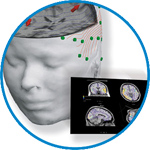
asa
asa is a highly flexible EEG/ERP and MEG analysis package with a variety of source reconstruction, signal analysis and MRI processing features.
.jpg)
eego mylab
The new frontier in multimodal brain research. With up to 16 kHz sampling rate, 256 EEG channels and unique software features, eego mylab gives you an unprecedented in-depth understanding of the human brain.
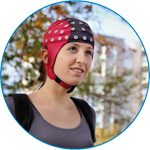
eego sports
eego sports offers complete freedom to collect high-density EEG data, bipolar EMG signals, and a variety of physiological sensor data, wherever and whenever required, with publish quality data in less than 15 minutes!
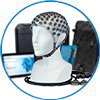
waveguard net
The waveguard net sets a new standard for research applications requiring high-density EEG data acquisition with quick preparation time, high flexibility, and subject comfort.
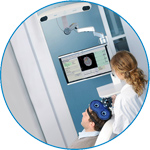
visor2
Our new and upgraded visor2 solutions integrate all the latest technologies for navigated rTMS, dual-coil navigation support, EEG-TMS recordings and pre-surgical evaluation for the highest quality in research and clinical procedures.
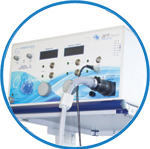
powerMAG ANT
The PowerMAG ANT 100 rTMS stimulator is designed for the specific needs of high-end TMS applications. Powerful high-frequency TMS as well as high precise single pulse and repetitive pulse protocols are combined in one single device.
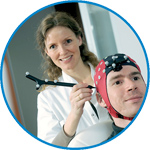
xensor
xensor offers the solution for digitization of 3D electrode positions. xensor takes care of the whole procedure; it records, visualizes and stores positions acquired with a dedicated digitizer.
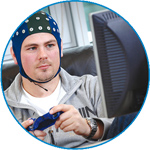
waveguard original
waveguard original is the cap solution for EEG measurements compatible with fMRI, MEG and TMS system. Use of active shielding guarantees performance in even the most demanding environments.
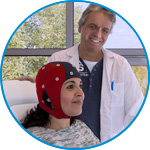
waveguard connect
waveguard connect EEG caps are a perfect match for hospitals and institutes aiming at reliable EEG, maximum uptime and great patient comfort! For optimal signal quality, the electrodes are made of pure, solid tin.
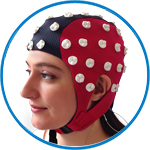
waveguard touch
waveguard touch is a dry electrode EEG cap. The unique Ag/AgCl coated soft polymer electrodes provide stable, research-grade EEG signals while maintaining subject comfort. The combination of these innovative dry electrodes and the industry-leading waveguard cap makes waveguard touch the best solution for dry EEG.
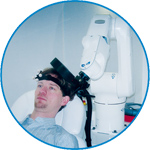
smartmove
smartmove allows planning of a complete TMS session ahead by defining stimulation sites based on anatomical MRI information and functional information like fMRI, PET or EEG/MEG.
Stay - References
- Support
- Events
- News
- Contact Us
You are here
Appetitive long-term taste conditioning enhances human visually evoked EEG responses
Appetitive long-term taste conditioning enhances human visually evoked EEG responses
Long-term effects of learned associations between an image and a taste have not been studied with electromagnetic brain scanning techniques. The possibility that taste conditioning may change sensory image processing was investigated in young adult subjects. EEG-responses evoked by images were recorded before and after a training session using an image as conditioned stimulus and a pleasant taste as unconditioned stimulus. The results showed that in posterior electrodes placed over visual cortex areas, the following changes occurred after conditioning: (1) the amplitude and duration of the N2–P3 waves inthe visual evokedpotentials were enhanced;(2)theN2andP3peakdelays were shortened;(3) power induced by image presentation was enhanced in the delta and theta frequency bands;(4) crosshemisphericdelta andtheta coherences among theposterior electrodes were enhanced;(5) calculations of the underlying whole brain distribution of currents using swLORETA showed elevated current densities in posterior voxels. None of the above changes occurred in a sham-trained control group. In electrodes placed over the prefrontal cortex, delta and theta power also rose significantly. It is suggested that the appetitive taste conditioning potentiated synaptic activity in visual cortex networks and thatt his led to an increased speed of image processing.

 Read more
Read more.jpg)




